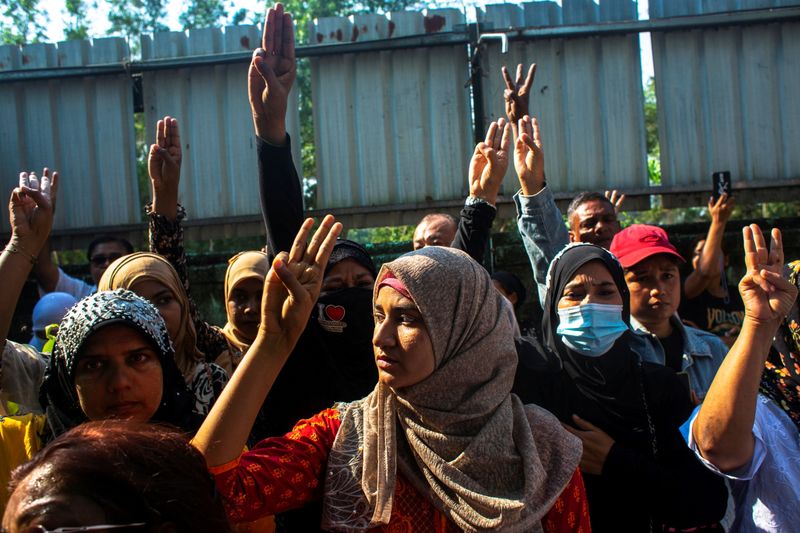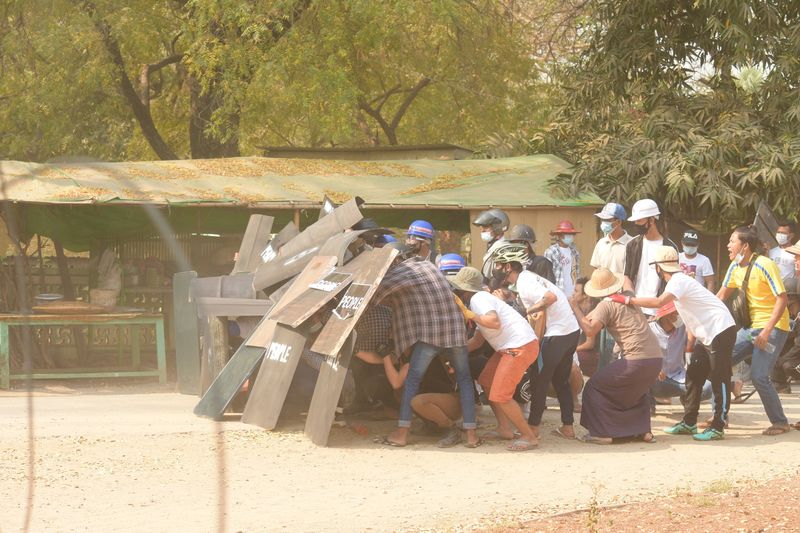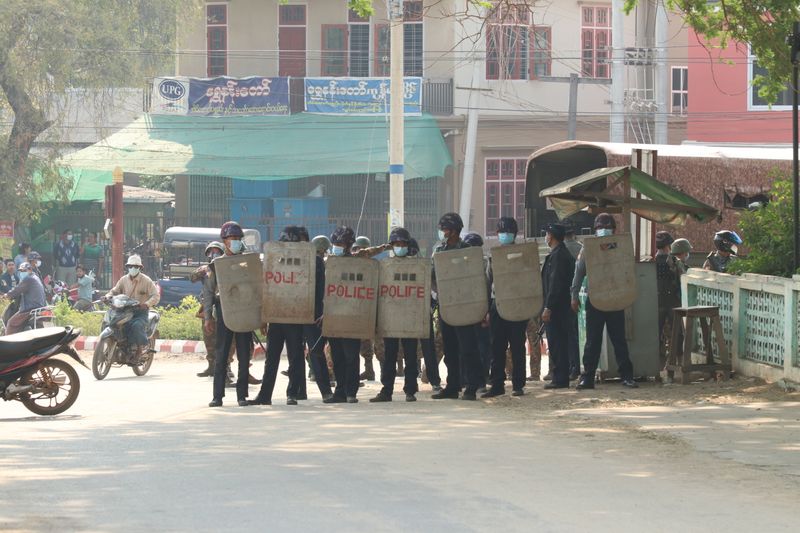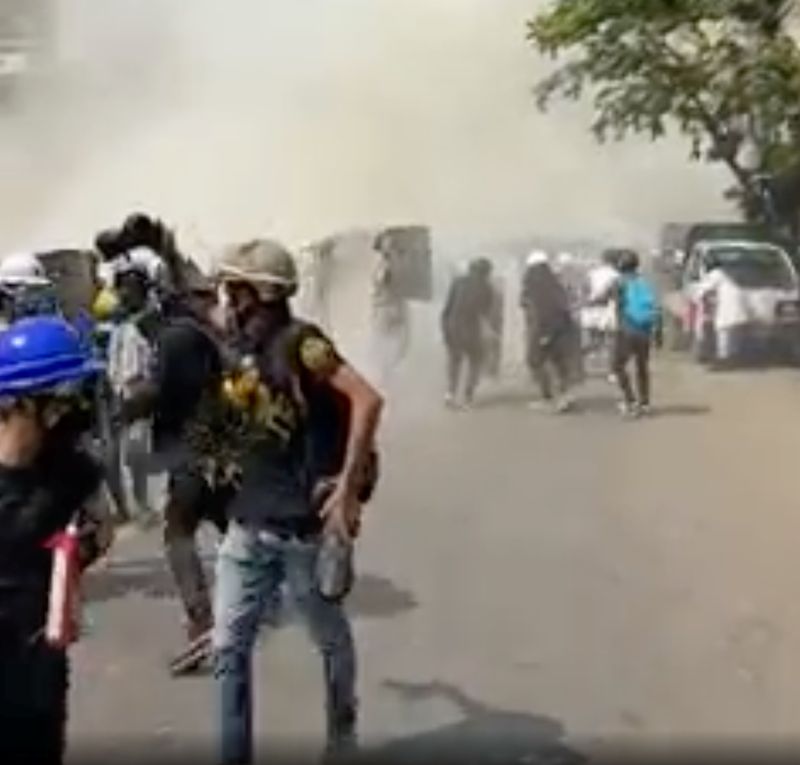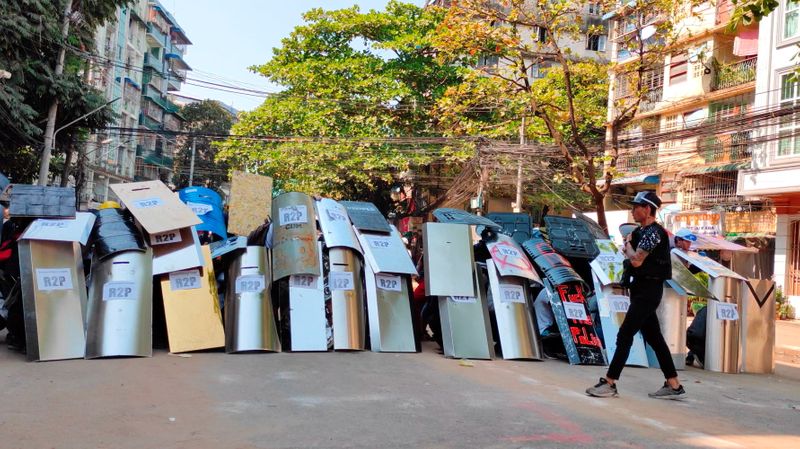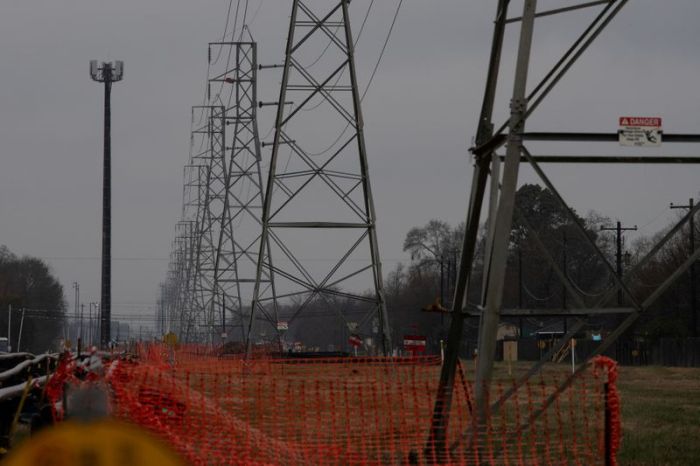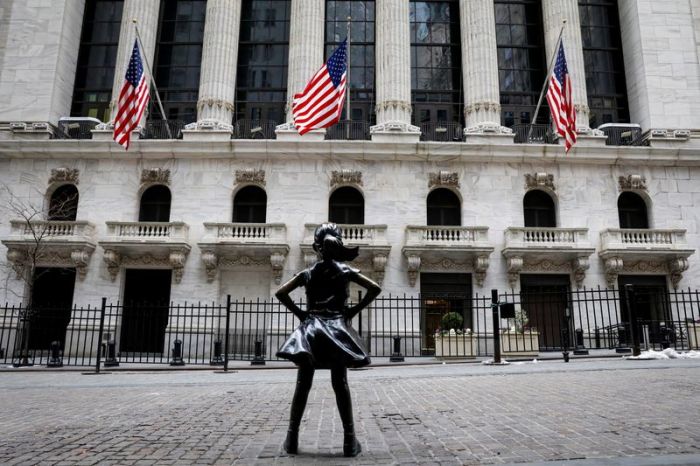(Reuters) – Myanmar’s major trade unions called on members to shut down the economy from Monday to back a campaign against last month’s coup, raising pressure on the junta as its forces fired weapons and occupied hospitals in the main city Yangon after a day of massive protests.
Witnesses reported sounds of gunfire or stun grenades in many districts of the commercial capital after nightfall, as soldiers set up camp in hospitals and university compounds, local media reported. It was not clear whether anyone was hurt.
The Assistance Association for Political Prisoners, a non-profit, said the army was “intentionally terrorizing residents” in Yangon.
The show of force came after some of the largest nationwide protests since the Feb. 1 coup, and an alliance of nine unions said they planned a “full extended shutdown” of the economy.
“To continue economic and business activities as usual…will only benefit the military as they repress the energy of the Myanmar people,” they said in a joint statement. “The time to take action in defence of our democracy is now.”
A spokesman for the military did not answer calls seeking comment and Reuters was unable to reach police for comment. The army has said it is dealing with protests lawfully.
An official from the party of deposed leader Aung San Suu Kyi died overnight in police custody. National League for Democracy (NLD) official Khin Maung Latt had worked as a campaign manager for one of two Muslim MPs elected in 2020.
Ba Myo Thein, a member of parliament’s upper house which was dissolved after the coup, said reports of bruising to Khin Maung Latt’s head and body raised suspicions that he had been abused.
“It seems that he was arrested at night and tortured severely,” he told Reuters. “This is totally unacceptable.”
Police in Pabedan, the Yangon district where Khin Maung Latt was arrested, declined to comment.
STUN GRENADES
Sunday saw some of the biggest protests in recent weeks. Police fired stun grenades and tear gas to break up a sit-in by tens of thousands of people in Mandalay, the Myanmar Now media group said. At least 70 people were arrested.
Police also launched tear gas and stun grenades in the direction of protesters in Yangon and in the town of Lashio in the northern Shan region, videos posted on Facebook showed.
A witness said police opened fire to break up a protest in the historic temple town of Bagan, and several residents said in social media posts that live bullets were used.
Video posted by Myanmar Now showed soldiers beating up men in Yangon, where at least three protests were held despite overnight raids by security forces on campaign leaders and opposition activists.
Sithu Maung, the NLD MP who worked with Khin Maung Latt, said soldiers and police detained his father on Sunday night.
“They broke into the house… and point with guns, I was told,” he said in a Facebook post, adding that his father was also beaten.
The United Nations says security forces have killed more than 50 people to quell daily demonstrations and strikes since the military overthrew and detained Suu Kyi on Feb. 1.
“They are killing people just like killing birds and chickens,” one protest leader said to the crowd in Dawei, a town in Myanmar’s south. “What will we do if we don’t revolt against them? We must revolt.”
State-run Global New Light Of Myanmar newspaper quoted a police statement as saying security forces were dealing with the protests in accordance with law. It said the forces were using tear gas and stun grenades to break up rioting and protests that were blocking public roads.
CONDEMNATION
Well over 1,700 people had been detained under the military junta by Saturday, according to figures from the Assistance Association for Political Prisoners advocacy group.
The killings have drawn anger in the West and been condemned by most democracies in Asia. The United States and some other Western countries have imposed limited sanctions on the junta.
China, Myanmar’s giant neighbour to the northeast, said on Sunday it is prepared to engage with “all parties” to ease the crisis and is not taking sides.
Australia said it suspended a bilateral defence cooperation program with the military following the coup and its development program would engage only with non-government organizations.
Protesters demand the release of Suu Kyi and respect for November’s election – which her party won in a landslide but which the army rejected. The army has said it will hold democratic elections at an unspecified date.
(Reporting by Reuters Staff; Writing by Matthew Tostevin, Raju Gopalakrishnan, Poppy McPherson; Editing by Mark Heinrich, William Maclean and Frances Kerry)

